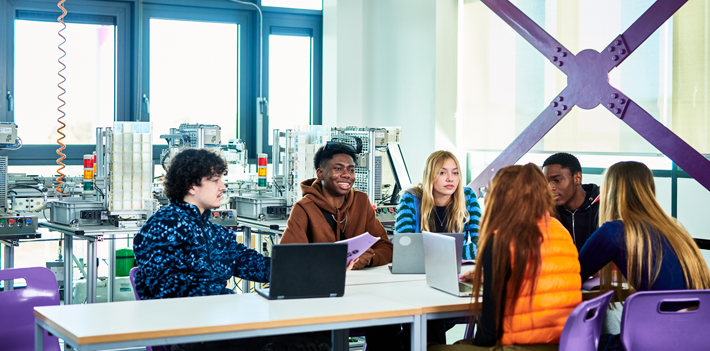Projects
Collaborative solutions for higher education challenges
Identifying opportunities to optimise higher education operations through collaboration.
Ongoing
Started:
Expected outcome: Service development

About this project
This initiative explores collective, collaborative, and inter-institutional activities to help tackle the pressing challenges in higher education. Our goal is to create a more sustainable, efficient and resilient operational model for universities through shared digital, data and technological innovations.
The need for this project
The UK higher education sector faces significant challenges, including rising costs for infrastructure, technology, and student support services, combined with inflation and economic instability.
Changes in immigration policies and global political dynamics are affecting international student recruitment, while scrutiny on the cost and value of higher education threatens funding.
Students are demanding better education quality, welfare mental health support, and an enhanced experience. Meanwhile, universities face growing pressure to modernise legacy systems and meet evolving policy and technology demands.
The power of collaboration
We were founded to provide shared networking and information services for UK higher education institutions. Over the years, our work has expanded to meet the sector’s evolving needs.
Our commitment to improving education and research through shared services and collaborative initiatives remains central. The integration of data, digital, and technology into university operations offers a unique opportunity to enhance service quality, efficiency and cost-effectiveness through collective action.
Phase one: laying the foundations
In the initial phase, we partnered with KPMG to explore how digital, data and technology collaboration could benefit the sector. We engaged 40 stakeholders across 22 institutions in the UK, Australia and the USA to:
- Identify key opportunities based on differentiation, feasibility and business case viability
- Assess the key enablers required for sector-wide collaboration
- Outline actionable next steps to drive meaningful change
The findings were published in the collaboration for a sustainable future report released in November 2024 which was well received by universities, sector agencies and governmental bodies.
Stakeholder engagement
Since the report’s release, we have presented its findings at key sector events, including:
- UKRI panel session at Computing Insight (December 2024)
- UUK members meeting (December 2024)
- HEPI webinar on collaboration (January 2025)
- HE shared services and structural collaboration conference (April 2025)
- Times Higher Education digital universities UK conference (April 2025)
Upcoming sessions:
- UUK university transformation and efficiency summit (May 2025)
Media coverage highlights
- Collaboration is already baked into the sector - WonkHE
- Deeper collaboration: the key to securing the future of higher education - Research Information
- HE reform priorities - WonkHE
Phase two: developing opportunities
We are working on next steps aligned with the report's recommendations, including:
- Reviewing data standards to enhance collaboration across institutions
- Assessing sector-wide digital transformation opportunities
- Providing additional advice and guidance for members
We're also working with UUK's transformation and efficiency taskforce on strand two of its programme, supporting sector-wide transformation - a key recommendation from UUK's blueprint and a response to governments reforms.